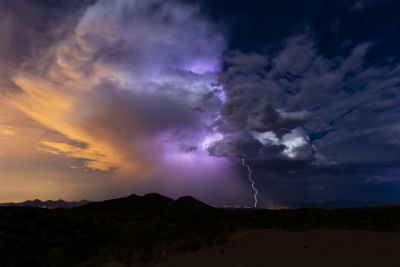
Although ocean-related weather is relatively quiet now, with only one named storm so far this year, the 2021 Atlantic hurricane season begins on June 1 and follows an active 2020 hurricane season that serves as a stark reminder of the need to plan ahead for hurricanes.
After a record-breaking 2020 season with 30 named storms, 13 hurricanes, six major hurricanes and 12 storms that made landfall, forecasters are predicting another above average hurricane season for 2021. Virginia was spared the brunt of last year’s storms, but certain areas of the Commonwealth felt them indirectly in the form of remnant rainfall and accompanying floods.
Hurricane season runs from June 1 through Nov. 30 each year. The State Corporation Commission’s (SCC) Bureau of Insurance encourages Virginians to review their insurance policies now to make sure they have the coverage needed if a hurricane or other disaster strikes. Once the threat of a hurricane or other weather system arises, it may be difficult to find an insurance company willing to write related coverage until the storm passes.
“Tropical cyclones such as hurricanes are among the strongest and most destructive forces of nature. All it takes is one storm to change your life dramatically, so the time to plan is NOW, said Virginia Insurance Commissioner Scott A. White. White encourages Virginians to review their insurance policies as part of their disaster preparedness checklist. “Assess your risk and make sure you have the coverage you need to repair or replace your home and property if they are damaged or destroyed during a hurricane or other disaster. Contact your insurance agent or company or the Bureau of Insurance if you have questions,” he said.
Even areas hundreds of miles inland from the coast can experience floods and other damage caused by hurricanes’ high winds and torrential rains. In fact, most hurricane damage comes from flooding, not high winds. Even minor floods can cause extensive damage to your home, business or belongings.
Keep in mind that homeowners, renters and commercial insurance policies issued in Virginia typically do not provide coverage for damage to your home and belongings due to floods, surface water or storm surges. However, the federal government does sell insurance covering direct flood and flood-related damage to homeowners, renters and businesses in eligible communities through its National Flood Insurance Program (NFIP). In most cases, there is a 30-day waiting period for a new flood insurance policy to take effect. To learn more about this program, contact your insurance agent or the NFIP at 1-800-427-4661 or visit floodsmart.gov. Some private insurers offer their own flood policies, so check with your insurance agent about the availability of a private flood insurance policy. In either case, ask whether your flood policy provides coverage for your personal property.
Some homeowners insurance policies contain a special deductible for wind or hurricane losses. These deductibles are applied separately from any other deductible on the homeowners policy. Some insurance companies automatically include a wind or hurricane deductible, while others offer this deductible at the policyholder’s option. Wind or hurricane deductibles may be written as a flat amount, such as $1,000, or they may be applied to the loss as a percentage of the insurance coverage on the dwelling. Remember that the deductible is the amount that you are responsible for paying before the insurance company pays its portion of a claim.
As part of the preparation for any potential disaster, the Bureau encourages policyholders to prepare a complete inventory of their personal property including photographs, videotapes and serial numbers. The National Association of Insurance Commissioners’ free smartphone app – myHOME Scr.APP.book – can facilitate this process. If possible, keep your insurance policies and home inventory accessible in a safe, waterproof and fireproof place.
If your property is damaged by a hurricane, contact your insurance agent or company as soon as possible. Make necessary emergency repairs and take reasonable steps to prevent further damage to your property. Compile a list of all damage to your property and include photographs, notes and repair-related receipts. In the event you must evacuate, know the name of your insurance company and take your homeowners, auto and other insurance policies and your home inventory with you or make sure you have saved these important documents electronically. The policies will contain your policy numbers and the phone numbers of your insurance companies in case you have questions or need to file a claim.
The Bureau of Insurance offers free consumer guides for homeowners and commercial property owners with information about what to do when a disaster strikes. These and many other consumer insurance guides are available at scc.virginia.gov/pages/Insurance.
The Bureau’s specially trained staff stand ready to assist consumers with their insurance-related questions and concerns. For more information, contact the Consumer Services Section of the Bureau’s Property and Casualty Division toll-free at 1-877-310-6560 or in Richmond at 804-371-9185. For additional emergency preparedness information relating to hurricanes and other types of disasters and hazards, visit vaemergency.gov.










